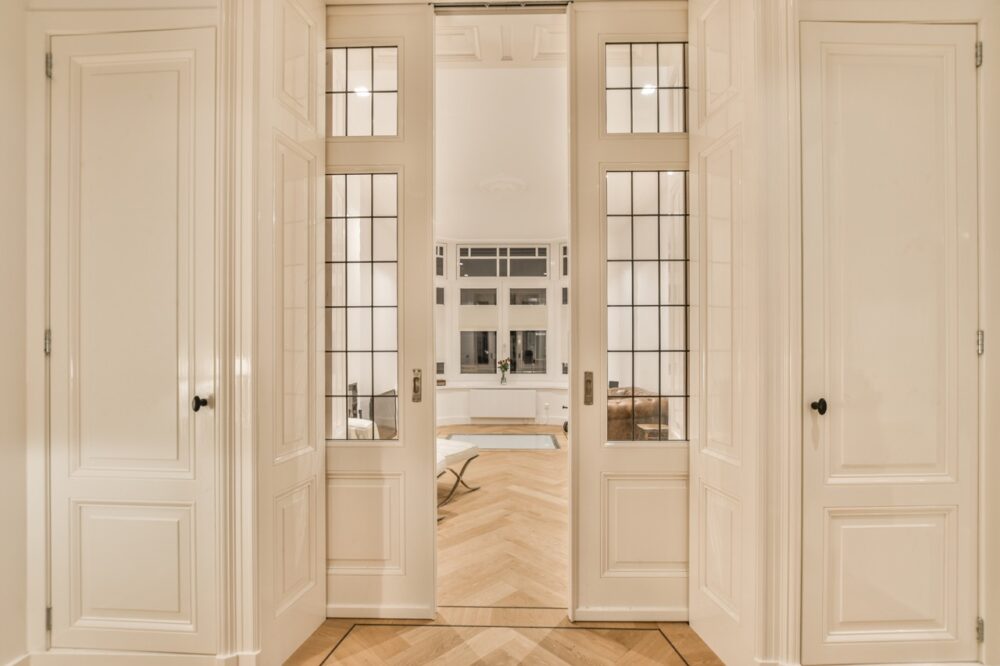Choosing the right interior door for your home is an important decision that greatly impacts the space’s functionality and aesthetics. With so many options available, it can be overwhelming to determine which criteria to consider when selecting.
A key factor when judging interior doors is the material from which they are made. Wood, metal, and fiberglass have pros and cons regarding aesthetic appeal, maintenance, and durability. The door’s design and style are important aspects to consider. They either clash with or complement the interior design.

The Importance of Functionality
Interior doors are essential to any home design, providing aesthetics and functionality. The importance of functionality cannot be overstated in interior doors. They serve as divisions of space, security, and privacy.
Exterior doors usually swing outward, allowing easy exit and entry. Interior doors swing inward or outward depending on the type of opening mechanism, whether it is a knob, slide, or hinge. The material of the door, like glass or wood, plays a crucial role in its functionality.
Solid core doors are usually more durable and provide better insulation against moisture and noise than hollow core doors. When selecting interior doors, it is essential to consider the existing hardware and frame to ensure functionality and a proper fit.
The door’s manufacturer’s specifications should be followed closely, regardless of whether it has a hollow or solid core and the quality of the materials. The doorknob, latch, and hinge hardware should be high quality to ensure safety and smooth operation.
The size and swing of the door—whether right-handed or left-handed—should be considered to avoid confusion during installation. Factors like quality, structural integrity, and price control in indoor manufacturing should also be considered to ensure a high-quality product.
Style and Design
Interior doors play a crucial role in the aesthetics of a home. The design and style impact the feel and look of a space. Every detail matters, from the type of material used to the hardware and paint chosen.
The way a door slides or swings open creates a sense of flow throughout the home. The doorknob, hinges, handles, and lock add to the design. Choosing the right manufacturer and specifying the correct door hardware helps determine the style and quality of interior doors.
Internal steel doors play a crucial role in the aesthetics of a home. The design and style impact the feel and look of a space. Every detail matters, from the type of material used to the hardware and paint chosen.
Cost and Budget
It is essential to consider the cost and budget. A primary factor is the type of door, such as solid wood or modern glass doors. The cost varies depending on the design, material, and door manufacturer. Solid wood doors are of higher quality but have a higher price tag.
Energy Efficiency
Interior doors significantly impact a home’s energy efficiency. The quality of the door affects how well it insulates and seals a room. Solid-core doors help reduce the transfer of moisture and heat between rooms.
The frame, hardware, and door hinges must be properly installed to ensure a tight seal. Adding weather stripping around the door further improves energy efficiency. Selecting high-quality hardware and ensuring the door is hung correctly minimizes air leaks between rooms, which leads to a more comfortable living space and lower energy bills.



















